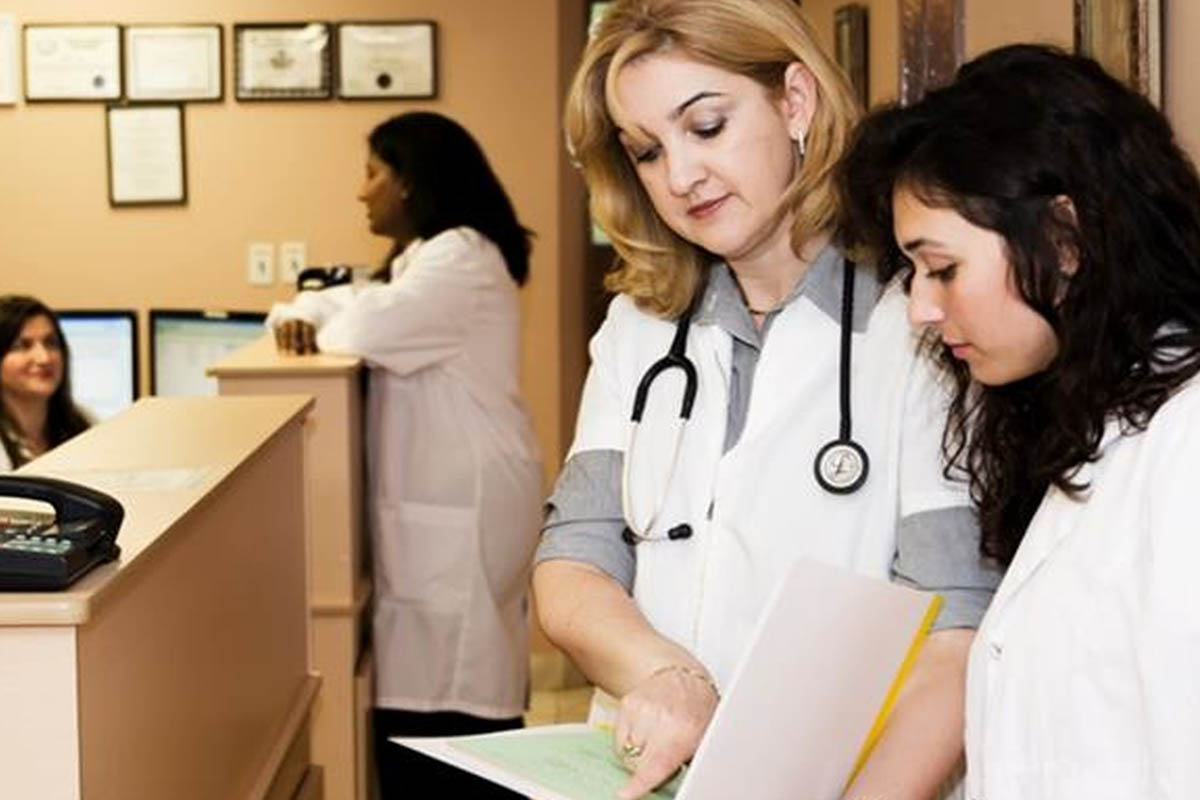Creating a More Just and Merciful World
The Expanding Role of Physician Assistants

Physician assistants often serve as a patient’s main healthcare provider, with people seeing them instead of a doctor.
Now, they are expanding their roles in several ways as medical providers seek to increase their primary-care capacity.
Physician Assistant Role in Practice
With their extensive training, physician assistants, or “PAs,” are versatile and collaborative. According to the American Academy of Physician Assistants, a broad medical education prepares physician assistants to:
- Take medical histories
- Perform physical exams
- Order and interpret lab tests
- Diagnose illness
- Develop and manage treatment plans for patients
- Prescribe medications
- Assist in surgery.
Physician assistants are licensed to practice medicine under the supervision of physicians. They tend to perform two main roles with other health practitioners, a substitute role or a complimentary role. The physician assistant’s scope of practice can depend on the needs of the healthcare provider they work for and the preferences of their clinical team.
Physician assistants effectively help deliver primary care in many healthcare settings. They practice in medical settings as diverse as hospitals, universities and clinics. The supply of these healthcare professionals remains a major issue because of increasing demands for an aging population and trends related to insurance coverage.
Physician assistants can also fulfill health equity needs. Skilled in cultural competence, many physician assistants communicate well and can be effective advocates for patients. Expanding health care for underserved communities is actually part of the history of the physician assistant profession. Although the field is evolving, the commitment to community is still strong.
Growing Career Field
Employment of physician assistants is projected to grow 31 percent from 2020 to 2030, which is much faster than the average for all occupations, according to the Bureau of Labor Statistics.
Healthcare providers are increasingly relying on physician assistants. Physician assistants and nurse practitioners are addressing growing concerns about the shortage of doctors that is expected in the years to come. The U.S. could see a physician shortage of 37,800 to 124,000 doctors by 2034, including in both primary and specialty care, according to the Association of American Medical Colleges.
Physician assistants have already started to fill the gap, and their responsibilities are growing.
Coming Through During Crisis
Physician assistants are in demand under normal circumstances, but the need for them was overwhelming during the coronavirus pandemic.
The pandemic proved that physician assistants could step up in times of crisis. Whether it was assisting health departments with virus testing, or traveling to states in need, physician assistants provided people with compassionate care. They have met the need for health care in a virtual setting as the use of telemedicine grows.
Improve Healthcare Access and Quality
You can meet the growing need for physician assistants. Choose Carlow University’s innovative MS in Physician Assistant program. The program is designed for adult learners seeking a holistic and supportive academic environment. This environment equips students with integral skills including ethical leadership, compassionate care and interprofessional collaborative competencies.
